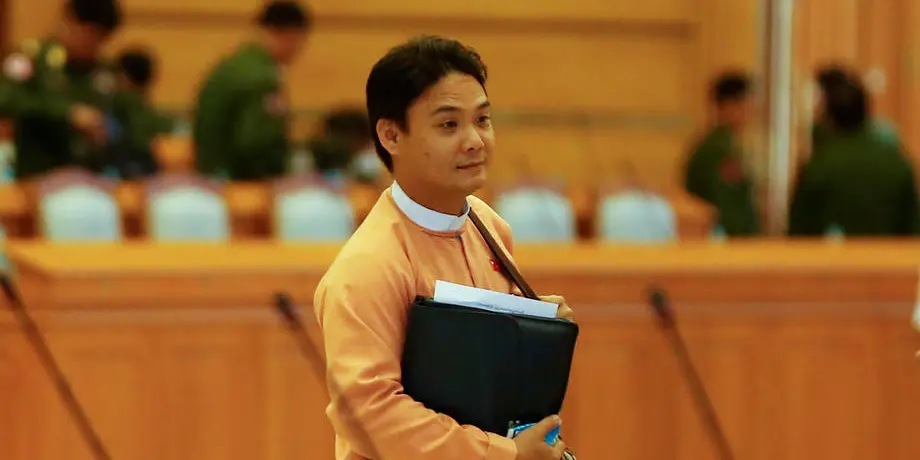
Southeast Asian MPs condemn barbaric executions of four political prisoners in Myanmar
July 25, 2022

JAKARTA – The recent executions of four political prisoners at the hands of the illegal military junta in Myanmar is an act of judicial barbarism, Parliamentarians from Southeast Asia have denounced today, after the state media announced that the death sentences have been carried out on an unspecified date at Insein Prison, in Yangon.
The four executed men, all charged under anti-terrorism laws, are Phyo Zeya Thaw, former lawmaker for the National League for Democracy (NLD); the prominent activist Kyaw Min Yu, widely known as ‘Ko Jimmy’; Aung Thura Zaw; and Hla Myo Aung. These death sentences are the first known judicial executions in Myanmar since 1988, according to Amnesty International, which hitherto has considered the country as “Abolitionist in Practice”.
“These executions are nothing but appalling acts of evil committed by a brutal junta that has shown no qualms about waging a war against the Myanmar population in order to cement its power. The global community, and all ASEAN members in particular, should take these cold-blooded assassinations as yet another wake up call on the true nature of the regime of terror that the Myanmar military is attempting to impose in the country,” said Eva Sundari, former member of the House of Representatives in Indonesia and Board Member of ASEAN Parliamentarians for Human Rights (APHR).
According to the Myanmar group Assistance Association for Political Prisoners (AAPP), as of 22 July there were 76 prisoners in Myanmar sentenced to death, including two children, while 41 people have been given the death penalty in absentia. Since the coup on 1 February 2021, at least 2114 people have been killed by the self-styled State Administration Council (SAC), led by General Min Aung Hlaing, in its campaign to suppress the widespread opposition to military rule.
These death sentences should be viewed as an attempt by the Myanmar military to provide a veneer of legality to political assassination. Yet it is evident that these sentences were handed without fairness, by military tribunals conducting trials lacking in any respect for due process, APHR denounced.
“It is clear that these executions are made to strike fear among representatives of the democratic forces and political activists who oppose the junta . We believe that all those accused by the military junta are tried in secret, unfair and biased trials with no legal safeguards. Many political prisoners are subjected to torture and other forms of cruel, inhuman or degrading treatment, and now there are dozens of prisoners in Myanmar jails who could be executed at any moment,” said Tom Villarin, former Philippine MP and APHR Board Member.
“Not even the previous military regime, which ruled the country between 1988 and 2011, dared to carry out the death penalty against political prisoners. This means yet another increase in the junta’s brutality, which comes from a sense of impunity largely fostered by the failure of the global community to do anything effective to prevent it from committing further atrocities,” said Charles Santiago, Member of Parliament from Malaysia, and APHR Chairperson.
The executions also serve as proof that the SAC led by Min Aung Hlaing has no intention to engage in any meaningful political dialogue with the pro-democracy forces led by the National Unity Government of Myanmar (NUG). Such a dialogue, one of the key points of the Five-Point Consensus agreed by ASEAN member states and Min Aung Hlaing’s junta in April 2021, has never materialized.
The Consensus also called for an immediate cessation of violence, something that the Myanmar military, which continues shelling villages and killing protesters, has also failed to implement. Yet the Myanmar military, in its all-out war over its people is committing “systematic and widespread human rights violations and abuses” that may amount to “war crimes and crimes against humanity,” according to the UN High Commissioner for Human Rights.
“The junta’s contempt for the agreement it signed is clear, especially considering that the announcement of these executions comes two weeks after the Special Envoy of the ASEAN Chair to Myanmar, Cambodian Foreign Minister Prak Sokhonn, visited the country. The Special Envoy, and ASEAN members, should condemn these executions, and seriously rethink their approach to the crisis in Myanmar. For starters, they should begin exerting pressure on the SAC with targeted sanctions and travel bans in the region in order to show Min Aung Hlaing and his men that they cannot commit their crimes with impunity,” said Kasit Piromya, former MP and Foreign Minister in Thailand, and APHR Board Member.
ASEAN Parliamentarians for Human Rights (APHR) was founded in June 2013 with the objective of promoting democracy and human rights across Southeast Asia. Our founding members include many of the region's most progressive Members of Parliament (MPs), with a proven track record of human rights advocacy work.